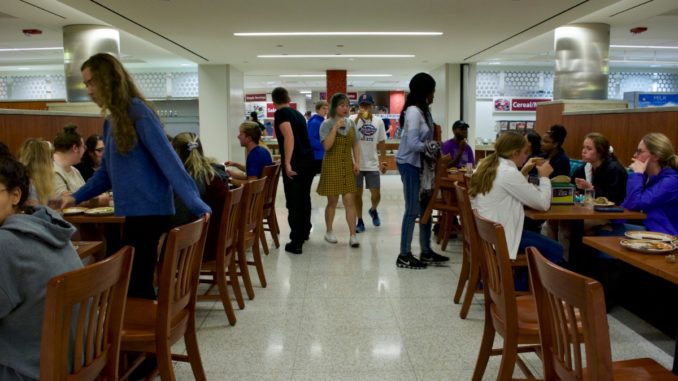
The number of applicants for the student adviser position was lower than anticipated this semester, and Residence Life extended the deadline to accommodate this.
The 2016-17 school year saw the employment of nearly 90 student advisers, while 2019-20 had 75 SAs. The 2020-21 school year SA selection is taking place March 16, but the first wave of applications saw only about 17 applicants. The deadline was then extended and a more aggressive marketing campaign put into place, resulting in around 57 applicants in the second wave.
Director of ResLife Jamie Van Boxel declined to share exact applicant numbers, but maintains that the number of applicants is proportionally similar to the number of applicants other years when compared to enrollment.
Van Boxel said because the decline in the number of SA applications is proportional to the declining number of enrolled students at Truman, life in the residence halls will not be affected.
Van Boxel said the first wave of applications saw fewer applications than expected, which he attributed to poor marketing by the department.
“As soon as we were past the deadline we were getting a number of inquiries from students who had just learned about the application — that it was time to apply to be an SA or an apartment manager — and when they went on the website to apply … they couldn’t because we were passed,” Van Boxel said.
After receiving additional interest, ResLife made a quick decision to reopen the form and take more submissions while also increasing publicity for the job.
Zac Burden, student life and development coordinator for ResLife, is a member of the committee for hiring SAs. He works with other ResLife staff to review applications and interview applicants.
Current SAs were asked to participate in the recruitment of new SAs by identifying and recommending students in their community to consider the job. Students who were recommended would receive an email with their name, the name of the current SA who recommended them and an invitation to apply.
Burden said that the department now has a “good size pool” of applicants, and he felt that involving the current SAs in recruitment was effective.
While ResLife administration feels that SA applicant numbers are low because of poor marketing and low enrollment, certain SAs have spoken out and feel that the decrease in applicants is because of negative sentiments regarding the job.
Senior Caleb DeWitt has been an SA for three years. He said he used to find his job fulfilling and fun, but now, because of the new ResLife educational model, as well as other changes, he said he feels that he is no longer able to cater to the needs of his specific community.
While DeWitt thinks that the decline in SA applicants can be primarily attributed to poor marketing and unpromoted interest sessions, he said there might have been negative feelings regarding the sudden change in the job requirements, which could have contributed to the lower amount of applicants.
“With the high turnover that happened at semester, maybe there was a negative perception that was put out to like prospective applicants with the job and so they didn’t. Not as many people applied because they saw it as a negative job,” DeWitt said.
Under the new curricular model put in place last semester, SAs have far more restrictions on what they are able to put out. They no longer make door decorations and their bulletin boards now present assigned, standardized information instead of being up to the SAs discretion. They also no longer put on their own events and are instead encouraged to take their students to other events on campus or put on building-wide events.
During the recruitment process, SAs were asked to promote the job, speak positively about it and recommend their community members to apply to be SAs through the utilization of a Google form.
“There were some people who, since they did not enjoy the job anymore, would not recommend that job to other people and so they did not participate in the form that was sent out to encourage residents to apply,” DeWitt said.
